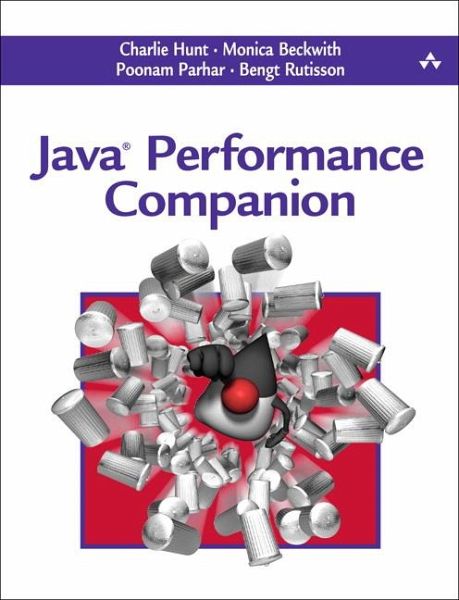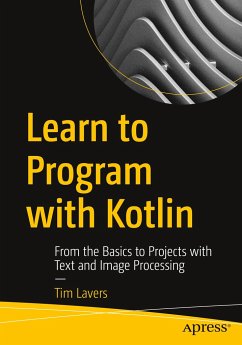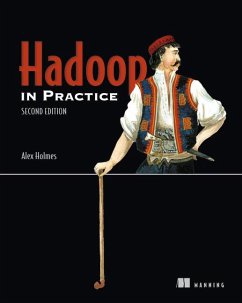
Java Performance Companion
Versandkostenfrei!
Versandfertig in über 4 Wochen
45,99 €
inkl. MwSt.
Weitere Ausgaben:

PAYBACK Punkte
23 °P sammeln!
Modern multicore processors offer immense opportunities to improve Java performance, but they also make Java performance tuning more complex than ever. Java Performance Companion helps you systematically improve Java performance by taking a proactive approach: identifying optimization opportunities, experimenting and accurately interpreting your results, and taking effective action. World-class Java performance experts present detailed information on common top-down (application-centric) tuning and bottom-up (hardware/OS centric) approaches, with solid coverage of Windows, Linux, and Solaris. They show how to improve performance by applying state-of-the-art software engineering practices, and how to avoid common mistakes that can mislead you into writing poorly performing software. Throughout, you'll find dozens of Java performance tips and tricks available nowhere else. Key topics include: * Monitoring Java performance at the OS level in Windows, Linux, and Oracle Solaris environments * Going under the hood with G1 and understanding it in unprecedented depth * Using modern Java Virtual Machine (JVM) and OS observability tools to profile running systems with almost no performance penalty * Integrating JVM-level and application monitoring * Mastering Java method and heap (memory) profiling * Tuning the Java HotSpot VM for startup, memory footprint, response time, and latency * Optimizing modern JVM JIT compilers * Using the HotSpot serviceability agent * Using Java Mission Control to improve latency, throughput, and footprint * Triaging JVM issues with the Serviceability Agent * Implementing best performance practices for using / writing Java Lambdas * Achieving optimal performance with dynamic languages on the JVM * Utilizing the newest Oracle and third-party tools for monitoring and measuring performance on diverse hardware architectures and operating systems Java Performance Companion can help you squeeze maximum performance and value from all your Java applications - no matter how complex they are, what platforms they're running on, or how long you've been running them.
Java® Performance Companion shows how to systematically and proactively improve Java performance with today s advanced multicore hardware and complex operating system environments.
The authors, who are all leading Java performance and Java HotSpot VM experts, help you improve performance by using modern software engineering practices, avoiding common mistakes, and applying tips and tricks gleaned from years of real-world experience.
Picking up where Charlie Hunt and Binu John s classic Java Performance left off, this book provides unprecedented detail on two powerful Java platform innovations: the Garbage First (G1) garbage collector and the HotSpot VM Serviceability Agent.
Coverage includes
Leveraging G1 to overcome limitations in parallel, serial, and CMS garbage collectionUnderstanding each stage of G1 GC collections, both young and oldGetting under the hood with G1 and efficiently fine-tuning it for your applicationIdentifying potential optimizations, interpreting experimental results, and taking actionExploring the internals of the HotSpot VMUsing HotSpot VM Serviceability Agent to analyze, triage, and resolve diverse HotSpot VM issuesTroubleshooting out of memory errors, Java level deadlocks, and HotSpot VM crashesExtending the Serviceability Agent, and using the Plugin for VisualVMMastering useful HotSpot VM command line options not covered in Java Performance
Java® Performance Companion can help you squeeze maximum performance and value from Java with JDK 8 or 9 for any application, in any environment.
Register your product at informit.com/register for convenient access to downloads, updates, and corrections as they become available.
The authors, who are all leading Java performance and Java HotSpot VM experts, help you improve performance by using modern software engineering practices, avoiding common mistakes, and applying tips and tricks gleaned from years of real-world experience.
Picking up where Charlie Hunt and Binu John s classic Java Performance left off, this book provides unprecedented detail on two powerful Java platform innovations: the Garbage First (G1) garbage collector and the HotSpot VM Serviceability Agent.
Coverage includes
Leveraging G1 to overcome limitations in parallel, serial, and CMS garbage collectionUnderstanding each stage of G1 GC collections, both young and oldGetting under the hood with G1 and efficiently fine-tuning it for your applicationIdentifying potential optimizations, interpreting experimental results, and taking actionExploring the internals of the HotSpot VMUsing HotSpot VM Serviceability Agent to analyze, triage, and resolve diverse HotSpot VM issuesTroubleshooting out of memory errors, Java level deadlocks, and HotSpot VM crashesExtending the Serviceability Agent, and using the Plugin for VisualVMMastering useful HotSpot VM command line options not covered in Java Performance
Java® Performance Companion can help you squeeze maximum performance and value from Java with JDK 8 or 9 for any application, in any environment.
Register your product at informit.com/register for convenient access to downloads, updates, and corrections as they become available.













